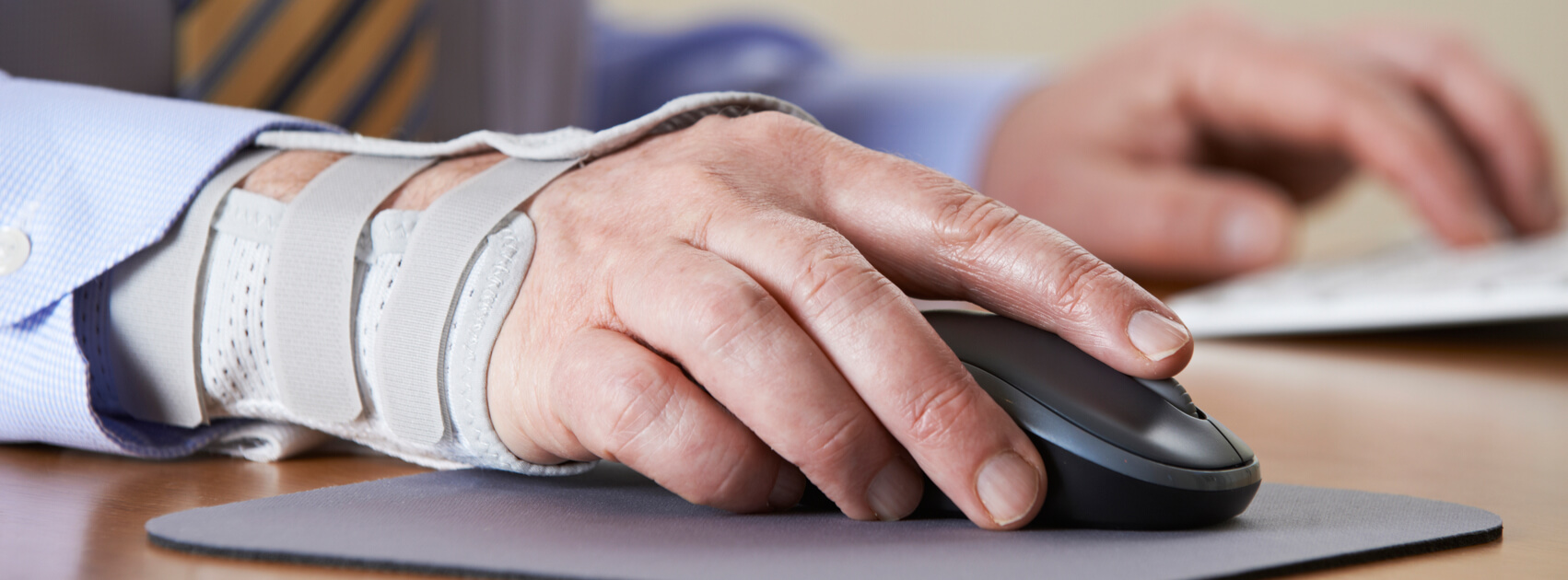
Most injuries that occur at work are covered by workers’ compensation in Pennsylvania. Injuries that develop over time can be as painful and debilitating as injuries from specific workplace accidents. Such work-related injuries include carpal tunnel syndrome, hand-arm vibration syndrome, torn rotator cuff, “tennis elbow”, “runner’s knee”, lumbar strain, and herniated discs. These injuries can be caused by repeated motions, using vibrating equipment, and continuous bending, twisting lifting or reaching.
As with other soft tissue injuries, it is important to consult with the appropriate physicians and to obtain the right treatments. Your successful workers’ compensation claim depends on your doctors’ ability to determine the extent of your injury and resulting disability and to document that the injury is consistent with your job duties or working conditions. Repetitive stress and cumulative trauma cases can be complex, as statute of limitation and notice issues can bar a claim. PearsonKoutcher lawyers understand the complexities of making a successful repetitive stress injury claim under the Pennsylvania Workers’ Compensation Act and will guide you through the process from start to finish.
One of the most common “repetitive stress” or “overuse” injuries is Carpal Tunnel Syndrome (CTS). CTS is a debilitating wrist condition suffered by workers whose jobs require repetitive movements, such as typing, writing, assembly line work, use of tools, driving or sewing. Symptoms include finger and palm numbness and tingling in the thumb, wrist pain, weakened grip and difficulty moving fingers.
Hand-arm vibration syndrome (HAVS) is a condition resulting from prolonged exposure to vibration. Employees who work with vibrating tools – jackhammers, chainsaws, polishers, power jigsaws and sanders – are especially prone to developing this workplace injury. HAVS affects the blood vessels, nerves, muscles and joints. HAVS is also known as “vibration white finger” because the continuous vibration causes the inflicted workers’ fingers to turn white. Other symptoms include a cold sensation, numbness, tingling or throbbing pain in the fingers, as well as loss of manual dexterity and/or grip strength.
Rotator cuff tears are tears in the tissues connecting muscle to bone (tendons) around the shoulder joint. A rotator cuff tear often occurs in employees who repeatedly perform the same shoulder motions. Symptoms can include shoulder pain and weakness while treatment can be as simple as rest and medication or as expensive and time consuming as physical therapy, corticosteroid injections, and possibly even surgery.
“Tennis elbow”, as it is informally called, is an irritation of the tissue connecting the forearm muscle to the elbow. “Tennis elbow” can be caused by repetitive wrist and arm motions. Pain is the primary symptom. It usually occurs on the outside of the elbow and sometimes in the forearm and wrist. Treatment includes rest, pain relievers, and physical therapy.
The condition known as “runner’s knee” is what happens when there is damage to the cartilage under the kneecap. The cartilage under the kneecap is a natural shock absorber and when the knee is overused or injured it can result in knee pain that worsens when walking up or down stairs, kneeling, squatting, or even just sitting cross-legged. It’s usually treated with rest, pain relievers, and physical therapy. However, if these treatments don’t work, surgery may be needed.
Lumbar strain is one of the most common causes of lower back pain. The injury can occur because of overuse, improper use, or trauma at work. It is classified as “acute” if it has been present for either days or weeks. If the strain lasts longer than 3 months, it is referred to as “chronic” and can be debilitating even under the best circumstances.
Herniated discs are a condition which refer to a problem with the rubbery disks between the spinal bones. This condition occurs when the soft center of a spinal disk pushes through a crack in the tougher exterior casing. Some herniated discs cause no symptoms. Others can irritate nearby nerves and result in extreme pain, numbness, or weakness in an arm or leg. Not every disc needs intervention but when needed, treatment can include medication, physical therapy, and possibly surgery.
Our work attorneys provide outstanding service and exceptional results through hard work and communication. Consultations are arranged at the convenience of the workman’s comp client, whether in our office or at the client’s home. Let us help you.
Call Now: 215-627-0700